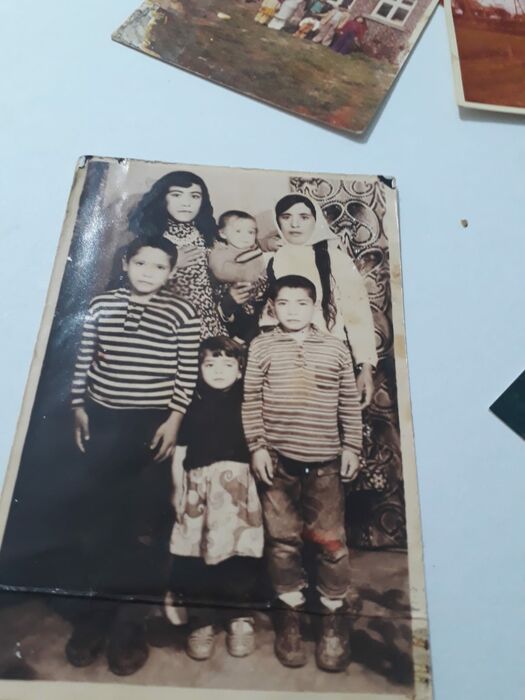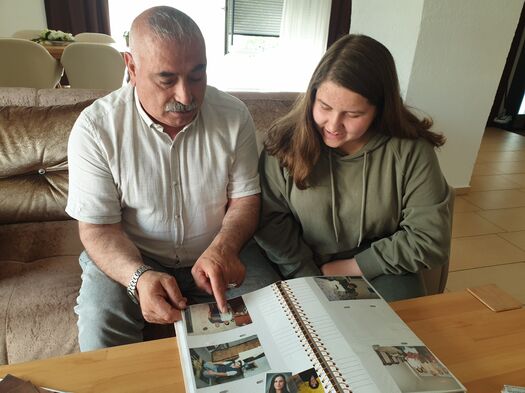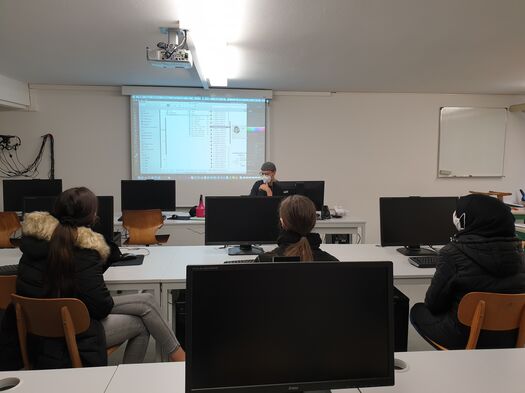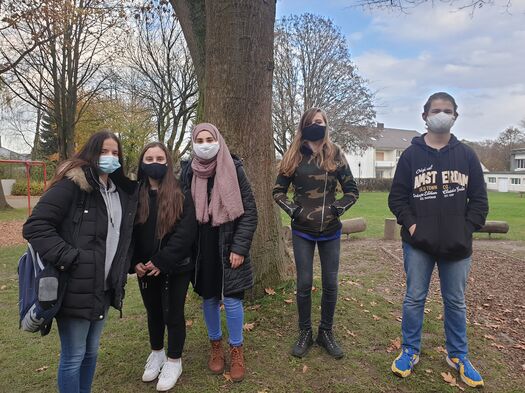



"We're off then" - parents become guest workers
What was it actually like - back then? ...when people mainly from southern countries moved to Germany - for a job, to earn money for their families, for the hope of a better life, for a good perspective, maybe also for an adventure - at first only for a short time, always with the thought to return.
These questions have already been explored in two books that the Netzwerk Jugendhaus Buer e.V. has developed together with young people: "Angekommen - Buer und seine Gastarbeiter" (2014) "Nachgekommen - Frauen in der Gastarbeitergeschichte" (2017).
The third volume, now in progress, is about the children of the guest workers under the working title "Mitgenommen - Aufwachsen zwischen zwei Welten" ("Taken along - Growing up between two worlds" ).
Back and forth - also for many children
For many of the guest workers, the decision as to which center of life they wanted and were able to choose for themselves and their families was a lengthy and also very difficult process. The stays became longer, the longing for the family grew, decisions were made anew. The arrival of the families at the place of work in Germany changed the lives of all family members very significantly. The women lived with their main focus of life 'family' in often very simple apartments in the 'new home' - with their children and little contact with German society. The young fathers, away from their working lives, now had to worry more about the needs of their families, often with several children. Particularly when school life and the associated long-term career prospects became important for the children, the disruption of the young families became clear - quite a few decided to return, or at least to send the school-age children back to live with family members.
Legal changes then led to great pressure to make a final decision to live here or there. Thus, again, new decisions often had to be made for the children. Quite a few of the children and adolescents concerned spent years of their lives in different places, with different family members and in very different living arrangements - with considerable problems commuting between these worlds and being dependent on the decisions of parents and grandparents. Quite a few to this day have a problem feeling their identity is secure between cultures and live with the feeling that their soul is 'stuck' between cultures.
Quote from an interviewee who was taken to Germany, sent back to Turkey after a few years, and then came back to Germany after all:
"Life was interrupted there."
Diverse life stories by, with and for young people
We are approaching this difficult topic together with students of the Lindenschule Buer (many also with 'migration background') with another book project. Together, we are interviewing the children of the former guest worker families who were "taken along", trying to capture their personal feelings about the situation at that time and to take them up in a book.
This quite sensitive work on the difficult history of the young people at that time, who could not decide for themselves where and how to live, who grew up between or even with two cultures, can address both the positive aspects - "knowing one's way around two cultures and feeling secure" - and illuminate the difficult aspects - "feeling torn between two cultures".
Different media will be used for the research (interviews, literature, internet, photo and film documents), which will serve as the basis for an exhibition and a book.
Putting stories and experiences on paper - media competence
In cooperation with a professional media designer, an exhibition and another book in our small series on local guest worker history are created - from many stories and anecdotes, from much experienced and lived, from colorful diversity of life with breaks and healings, from fragments of life with questions and perspectives. The young people involved experience the development and content of these, as well as the handling of graphics and design elements, the power and dynamics of a layout, and the responsibility for printed and published material in the concrete development of the results of their project.
Their own lives?
In this project, we would also like to try to build a bridge to children and young people who are currently affected by immigration - children and young people who come to us with refugee experience or for completely different reasons and suddenly become 'new' classmates, neighbors and also friends. This is already evident in the everyday lives of young people, who often meet peers from other nations as a matter of course. Here, too, listening, empathy and respect are required in dealing with each other - an everyday challenge.